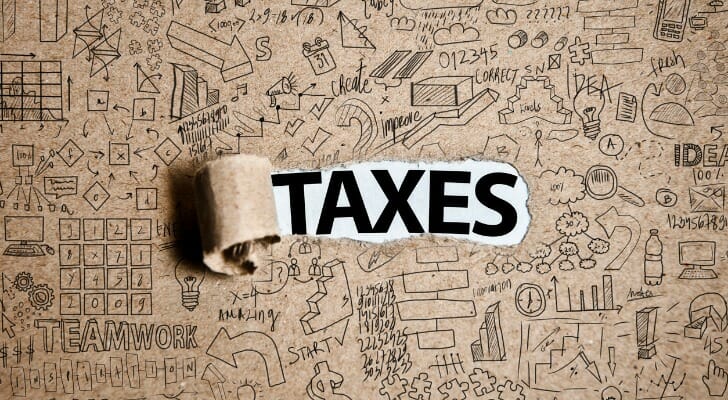A sole proprietorship is a simple type of business or enterprise that is owned and run by a single person. Sole proprietorships are subject to different rules than other types of businesses and can protect owners from personal liability while passing revenue on to the owner’s personal tax return. There are pros and cons to using a sole proprietor for your business that you should consider before deciding. A financial advisor can also help you find the right organizational structure for your unique financial situation.
What Is a Sole Proprietorship?
Sole proprietorships are unincorporated businesses that have one owner. Unlike other forms of business organization, such as corporations, a sole proprietorship is not a separate entity. A sole proprietorship is not even technically a legal entity at all. There is no distinction between owner and business. This leads to some important benefits and a few potential disadvantages.
Most businesses are organized as sole proprietorships. This is the easiest, most straightforward form of business organization. It has far fewer regulatory requirements than corporations, partnerships and other business entities. However, this doesn’t mean sole proprietorships are completely unregulated. For help managing your finances as a sole proprietor, consider working with a financial advisor.
Sole Proprietorship Formation
No action or expense is necessary to form a sole proprietorship beyond engaging in business activity. Someone who charges to walk dogs buys garage sale items for resale online or writes freelance articles for pay may be a sole proprietor whether they know it or not.
Sole proprietors are not quite free of any requirements for licenses, permits and other kinds of paperwork, however. Many cities and counties require even tiny businesses to register and pay fees for business licenses or tax certificates.
Some other paperwork that may need to be completed:
- Getting an employer identification number (EIN) from the IRS if the business has employees
- Receiving a seller’s license from the state
- Getting a zoning permit from the city planning commission
- Registering a “doing business as” (DBA) name with the county if the business is called something besides the owner’s name
- Occupational licenses such as those for electricians and cosmetologists.
These registration and permitting requirements are modest compared to the cost and complexity of forming and registering a corporation or partnership. However, they still need to be complied with when relevant. A business owner can check with the IRS, state department of taxation or local city government offices for guidance.
Sole Proprietor Taxes

One unavoidable requirement is filing a Schedule C with the IRS when the owner files a personal income return. Schedule C reports sole proprietor business profit and loss to the IRS. States may also require sole proprietor business tax returns.
Taxes for a sole proprietorship are streamlined compared to other business types because a sole proprietorship is a so-called flow-through business. That means all profits and losses from the business flow directly through to the owner. The net profit or loss on Schedule C is carried to the owner’s personal tax return form.
Sole Proprietor Benefits
Simplicity may be the biggest benefit of a sole proprietorship. It requires less paperwork and expense than any other form of business organization. As the only owners of their enterprises, sole proprietors also exert complete decision-making control over their businesses. They don’t have to share power with a board of directors or other officers or partners. Also, they can hire as many employees as they like.
Profits sole proprietors take from the business are not taxed twice. Corporation profits are – once when corporations report profits and again when owners report distributions as personal income. Profits from a sole proprietor, on the other hand, flow untaxed directly to the owner. The owner then pays taxes on them just once, at his or her personal rate.
Sole proprietors also may be able to use the qualified business income (QBI) tax deduction. This was set up by the 2017 tax law revision. It lets certain sole proprietorships and S corporations – also flow-through tax entities – deduct 20 percent of profits from taxable income.
Sole Proprietor Disadvantages

Sole proprietorships’ benefits come at a cost. One of the biggest is personal liability. There is no distinction between owner and business. So a sole proprietor is legally responsible for debts and other obligations of the business. If the business doesn’t pay a bill, defaults on a loan or owes damages from a lawsuit, a creditor could claim the owner’s home and personal assets.
Sole proprietorships can’t sell part ownership to investors, which can significantly limit growth potential. If a sole proprietorship’s growth plans require outside investors, it is often restructured into an LLC or corporation. These entities allow for multiple owners as well as limit owners’ liability.
The Bottom Line
A sole proprietor is the most common, easy, uncomplicated structure for a business. It has pluses when it comes to ownership control, costs and taxation. Sole proprietors do, however, have personal liability for business debts. And they can’t raise capital by selling ownership to outside investors. It’s important to find the right one for the business as much as it is to find the right structure the benefits you financially.
Tips for Business Planning
- Consider talking to a financial advisor about whether a sole proprietorship is a good way to organize your business. They can help structure you business in the most beneficial way for your personal finances. Finding the right financial advisor who fits your needs doesn’t have to be hard. SmartAsset’s free tool matches you with up to three vetted financial advisors who serve your area, and you can interview your advisor matches at no cost to decide which one is right for you. If you’re ready to find an advisor who can help you achieve your financial goals, get started now.
- It’s easy to create a sole proprietor business without knowing it, potentially exposing the owner to unexpected tax or other obligations. On the other hand, there are exclusive tax breaks for self-employed Americans. But the key to taking advantage of these benefits is knowing what’s tax deductible.
Photo credit: ©iStock.com/, ©iStock.com/nzphotonz, ©iStock.com/dima_sidelnikov
